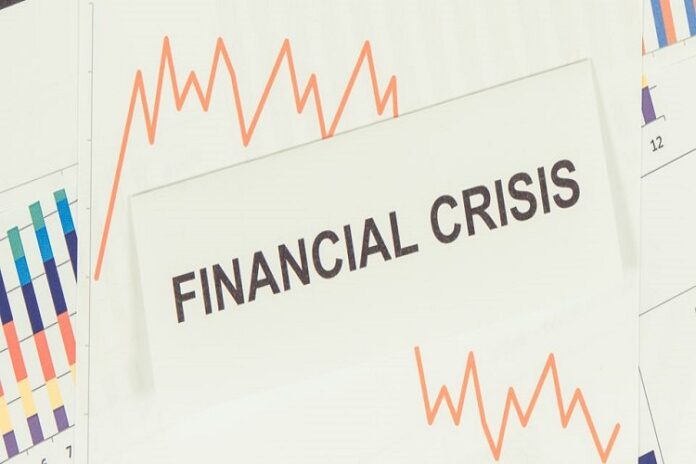The financial crisis, characterized by a sharp decline in the value of financial assets, had far-reaching effects on economies worldwide. It resulted in significant losses for individuals, businesses, and governments. To comprehend the ethical implications of this crisis, we must first understand its causes. Uncover the ethical challenges at Credit Cafe that contributed to the financial crisis and equip yourself with the knowledge and tools to advocate for ethical reforms.
Causes of the financial crisis
The financial crisis can be attributed to various factors, including irresponsible lending practices, inadequate regulation, and excessive risk-taking. Subprime mortgages, securitization, and the failure of major financial institutions all triggered the crisis.
Ethical Aspects
Corporate greed and unethical practices
One of the primary ethical concerns surrounding the financial crisis is the role played by corporate greed and unethical practices within the financial industry. Some financial institutions engaged in predatory lending, misleading investors, and deceptive financial practices. These actions prioritized short-term profits over long-term stability and ethical considerations. Take a deep dive into the ethical underpinnings of the financial crisis and empower yourself with the knowledge needed to drive change. Economics And Money is your go-to resource for ethical finance.
Impact on vulnerable populations
The financial crisis profoundly impacted vulnerable populations, exacerbating existing inequalities. Many individuals lost their homes, jobs, and life savings, increasing poverty and social unrest. The ethical question arises regarding whether financial institutions’ actions adequately consider these vulnerable groups’ well-being.
Role of financial institutions and Regulations
The financial crisis highlighted the importance of effective regulation and oversight of financial institutions. Ethical concerns arise regarding the responsibilities of these institutions to act in the best interests of their clients and society as a whole. The failure to uphold these responsibilities contributed to the severity of the crisis.
Moral hazard and accountability
Moral hazard, where individuals or institutions take risks because they believe they will be bailed out in the event of failure, was a significant issue during the financial crisis. The lack of accountability for the consequences of risky behavior raises ethical questions about the fairness of bailouts and the distribution of burdens.
Insider trading and fraud
Insider trading and fraudulent activities were uncovered during and after the financial crisis. Such unethical behavior undermines market integrity and erodes public trust. The question of preventing and punishing such actions while upholding ethical standards remains a significant challenge.
Economic Implications
Wealth inequality and its ethical implications
The financial crisis exacerbated wealth inequality, with the burden falling disproportionately on those with fewer resources. This raises ethical questions about the fairness of an economic system that perpetuates and worsens inequalities, particularly during times of crisis.
Bailouts and their ethical considerations
Governments worldwide intervened by providing bailouts to struggling financial institutions during the crisis. This action raised ethical concerns about moral hazard, fairness, and using taxpayer money to rescue private entities. The debate over whether the bailouts were ethically justified continues to this day.
Government’s Role in the Crisis and ethical implications
The role of governments during the financial crisis is a topic of ethical scrutiny. Questions arise about how governments should have intervened earlier to prevent the crisis or regulate the financial industry more effectively. The ethical implications of government actions, or lack thereof, are significant.
Social Consequences
Trust and confidence in financial systems
The financial crisis severely damaged public trust and confidence in the financial sector. Rebuilding trust requires addressing ethical concerns related to transparency, accountability, and the fair treatment of customers. Restoring faith in financial institutions is crucial for a stable and sustainable economic system.
Public perception of the financial sector and its ethics
The financial crisis created a negative perception of the financial sector, with many viewing it as morally bankrupt and driven solely by greed. Restoring public confidence requires ethical reforms prioritizing society’s long-term well-being over short-term financial gains.
Social Unrest and its Connection to the financial crisis
The financial crisis contributed to social unrest and protests worldwide as individuals and communities struggled with the consequences. The Connection between economic instability and social unrest underscores the ethical dimensions of the crisis and the need for systemic change.
Impact on Employment and Poverty
The financial crisis led to significant job losses and increased poverty rates. Ethical considerations arise regarding the responsibility of financial institutions and governments to mitigate the impact of economic downturns on employment and poverty. Balancing profit motives with social welfare becomes a crucial ethical challenge.
Solutions
Ethical reforms and regulatory measures
Addressing the ethical aspects of the financial crisis requires implementing reforms and regulatory measures to prevent a recurrence. Stricter oversight, transparent reporting, and ethical standards are necessary to ensure that financial institutions act responsibly and in the best interests of society.
Transparency and accountability
Enhancing transparency and accountability within the financial industry is paramount. Ethical behavior should be incentivized, and mechanisms for reporting unethical practices should be strengthened. Transparency in financial transactions and risk disclosure can help rebuild trust and prevent future crises.
Conclusion
The financial crisis brought to light numerous ethical concerns within the financial sector. From corporate greed and unethical practices to the impact on vulnerable populations and wealth inequality, the crisis underscored the need for ethical reforms and responsible behavior. Addressing the ethical aspects of the financial crisis is essential for rebuilding trust, promoting stability, and creating a more equitable economic system. Discover actionable insights and practical steps to promote ethical behavior in finance by visiting this website Eden Investments.









